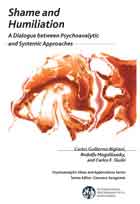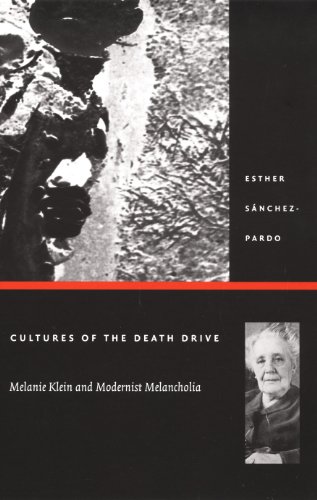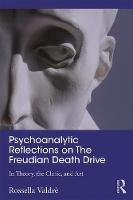Thanatos, Shame, and Other Essays: On the Psychology of Destructiveness
Part of The Harris Meltzer Trust series - more in this series

Book Details
- Publisher : Harris Meltzer Trust
- Published : 2010
- Cover : Paperback
- Pages : 240
- Category :
Psychoanalysis - Catalogue No : 27803
- ISBN 13 : 9781855756489
- ISBN 10 : 185575648X
There are currently no reviews
Be the first to review
'This important work has become a classic in Finnish psychoanalytic thinking. It is one of the cornerstones in the training of psychoanalytic psychotherapy and psychoanalysis in our country. The authors' deep understanding has clarified Freud's final drive-instinct theory together with important additions that are a great help in integrating it with object relations theory.'
- Olavi Hamalainen, President, Finnish Psychoanalytical Institute
Reviews and Endorsements
'Pentti Ikonen and Eero Rechardt are well known in Scandinavian psychoanalysis: they have been welcome discussants of others´ work, but above all they have come up with their own original ideas. Their most thought-provoking contribution is a new interpretation of Thanatos (the death drive), which forms the core of this book. In Scandinavia, Ikonen´s and Rechardt´s thinking has opened up a totally new perspective not only on aggressiveness, but also on phenomena like narcissism and shame. Their contribution has cleared up theoretical problems and has proven clinically very helpful. Written in a lucid language, these texts will speak to readers from a variety of professional backgrounds.'
- Henrik Enckell, Chair, Consortium of Academic Psychoanalytic Research, Finland
'In their review of Freud's dualistic drives Eros and Thanatos, the authors describe how the act of 'binding' strives to remove the mentally disturbing or the 'unbound'. Destructiveness is seen not as a drive in itself but as a branch of the Thanatos tree, one of the ways of binding to gain peace and relief. The authors also have an original approach to the concept of libido, often so difficult to understand, which they define as a need for mutuality. This relates to the significance of shame and its various manifestations, and how it differs from guilt. While guilt is linked with our intentions or deeds, shame applies to the whole self, which is felt to be worthless and unavailable for mutuality. The authors vividly describe the implications of this for the intolerance of intimacy in the psychoanalytic relationship. The special skill of the authors lies in teaching theoretically difficult issues in a clinical context. The essays convey their humble and respectful attitude to the uniqueness of a human being, and enable readers to experience the living mutuality of studying as well as that of working with patients.'
- Anneli Hautala, Board member, Foundation for Adolescent Psychotherapy, Finland
About the Author(s)
Pentti Ikonen MA, is a training psychoanalyst who has worked in private practice in Helsinki.
Eero Rechardt is a docent of psychiatry at the University of Helsinki. He is a training psychoanalyst who has worked in private practice in Helsinki.
Customer Reviews
Our customers have not yet reviewed this title. Be the first add your own review for this title.
You may also like
Shame and Humiliation: A Dialogue between Psychoanalytic and Systemic Approaches
Carlos Guillermo Bigliani
Price £35.99
Cultures of the Death Drive: Melanie Klein and Modernist Melancholia
Esther Sanchez-Pardo
Price £28.99
Psychoanalytic Reflections on The Freudian Death Drive: In Theory, the Clinic,...
Rossella Valdre
Price £30.35
save £2.64







